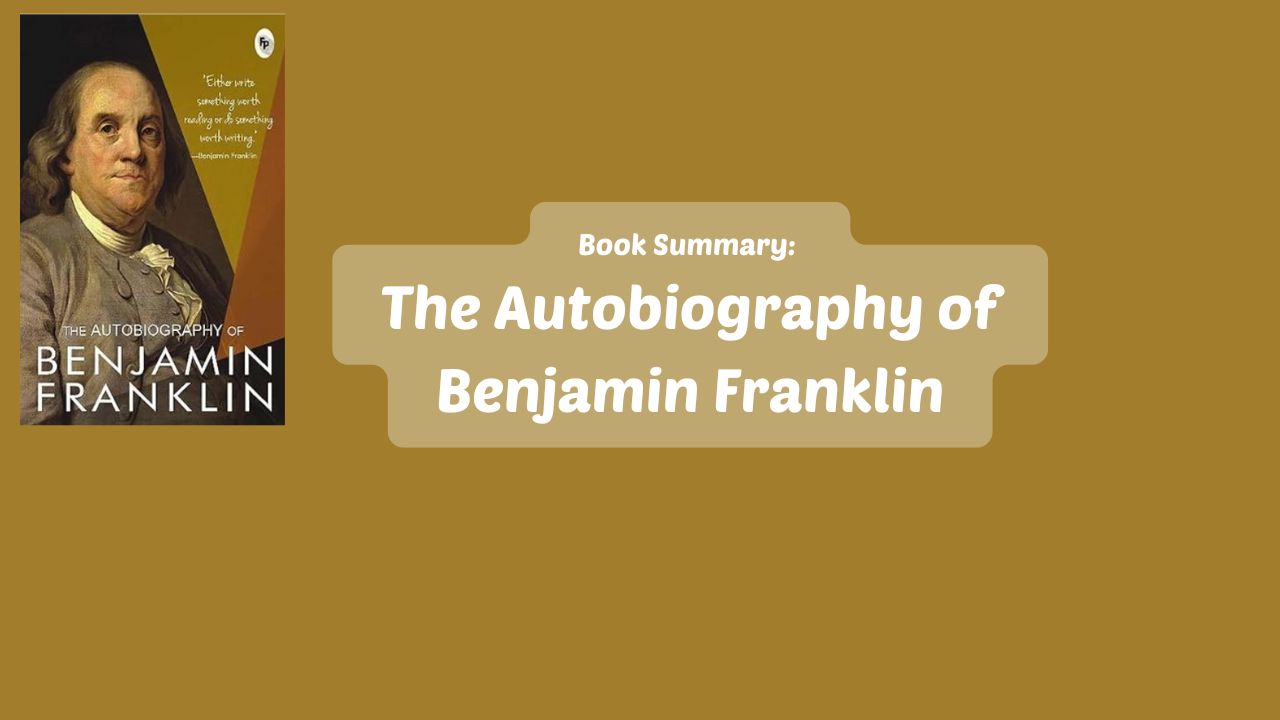
The Autobiography of Benjamin Franklin#
The United States of America was founded by sixteen influential individuals, commonly referred to as the Founding Fathers. These include John Adams, Samuel Adams, Benjamin Franklin, Alexander Hamilton, John Hancock, John Jay, Thomas Jefferson, Patrick Henry, Richard Henry Lee, Robert R. Livingston, James Madison, George Mason, Robert Morris, Peyton Randolph, Roger Sherman, and George Washington. They were all remarkable personalities who shaped the American Dream, and Benjamin Franklin was one of the most influential among them.
Here’s a summary of “The Autobiography of Benjamin Franklin” presented in 11 key points:
Self-Improvement: Franklin’s autobiography is fundamentally about self-improvement and the pursuit of moral perfection. He lists 13 virtues that include 1. Temperance, 2. Silence, 3. Priority, 4. Resolution, 5. Frugality, 6. Industry, 7. Sincerity, 8. Moderation, 9. Justice, 10. Cleanliness, 11. Tranquality,12. Chastity and 13. humility, and describes his methodical approach to living by these principles. He also mentions how he added 13th value “humility” after long time of self-improvement.
Early Years: Franklin details his early life in Boston, where he was born as one of seventeen children. His curiosity and love for reading were evident from a young age, which shaped his path towards becoming a self-taught scholar.
Apprenticeship and Independence: He writes about being apprenticed to his brother James, a printer, at a young age. Disagreements with his brother led him to run away to Philadelphia, setting the stage for his independent life.
Establishment in Philadelphia: Upon arriving in Philadelphia, Franklin worked to establish himself as a reputable printer and businessman, eventually owning his own printing shop and publishing the Pennsylvania Gazette.
Civic Engagement: Franklin was deeply involved in civic affairs. He helped establish institutions such as the University of Pennsylvania and the first public lending library in America.
Inventions and Scientific Inquiry: His interest in science and innovation is showcased through his experiments with electricity, leading to the invention of the lightning rod among other discoveries.
Political Career: Franklin’s autobiography also covers his extensive political career, including his roles as postmaster of Philadelphia, colonial representative in England, and involvement in drafting the Declaration of Independence.
Diplomatic Roles: He served as the American ambassador to France during the American Revolution, playing a crucial role in securing French support, which was vital for the American victory.
Personal Reflections and Regrets: Franklin shares personal reflections, admitting regrets such as his treatment of his estranged wife and his initially misguided stance on colonial imperialism.
Philosophy of Life: Throughout the book, Franklin advocates for a practical, proactive approach to life. He emphasizes the importance of hard work, ethical living, and continuous learning.
Legacy and Influence: The autobiography ends with Franklin’s contemplations on his own legacy and the impact he hoped to leave on society, focusing on public service and the betterment of humanity.


Comments: